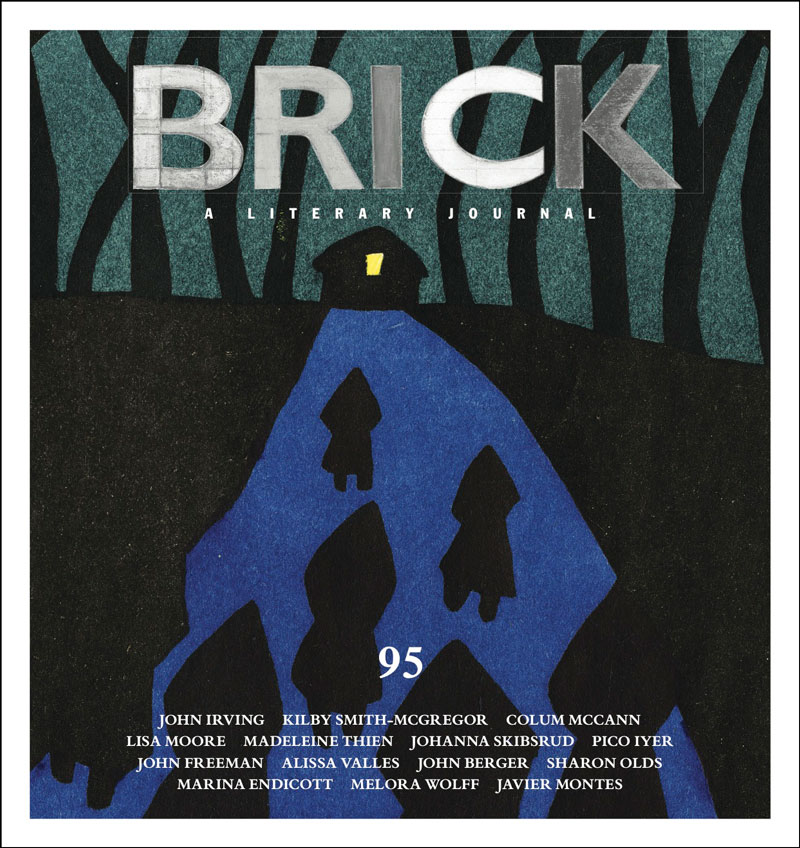“Will I be rich / will I be poor / will I still sleep on the floor?” The Descendents, a California punk group, posed, prophesized, and lyricized my life’s looming questions when they sang, “What will I be like / when I get old?”
It’s 2001. I’m living on Mayne Island, in the Georgia Strait, on Canada’s West Coast, running a B&B, eating the guests’ leftovers, and raising a toddler.
I show up hungry at Emily’s house for band practice.
Emily gives me an apple, her eyes full of parental concern. The rest of the band waits, as usual. My child is the youngest. I come to practice after I’ve put her to bed and I’m always late. The mandolin player taps his foot.
I grab a picture book, The Table Where Rich People Sit, and flop onto the couch while I eat.
A how-to guide for raising children? Better yet, in the Holy Poverty of their artistic-minded parents? Hunger is nothing new. Not long ago I busked the Vancouver streets. I was five months pregnant—the guitar stuck out at a forty-five-degree angle—before I quit and came to Mayne.
Virginia Woolf called for “a room of one’s own”; my ten-by-ten room on Water Street was called a sleeping room because I had a fridge, a hot plate, and a sink that I sometimes used as a toilet when I didn’t want to use the bathroom I shared with the twenty-two other people on my tenement floor. People suppose a writer can write anywhere. And I guess we do, whether we’re hungry or not.
The inventory of my life at that point consisted of one published poem, a handful of articles in newspapers, no toaster, no winter coat, no car, no credit cards. Some days I couldn’t even afford the postage for submissions to literary magazines.
I was fighting a Holy War. Like monks and other mortifiers of the flesh, I had taken a vow. I would suffer. I would eat from a dumpster and call it privilege.
Why? I was a writer. It was a calling.
“Are you finished?” the mandolin player says, pointing at the picture book, not even noticing my tears.
I order a copy from the bookstore the following day. So what if it means using dish soap for shampoo next week? I raise my toddler on its pages. And the next child too.
The narrator, an elementary-school girl, confronts her parents’ “strange ideas about working” at their kitchen “table [built] out of lumber somebody else threw away.”
“The subject is money,” she says, “and I say we don’t have enough of it.” She cites the “patches on [her brother’s] pants” and her father’s “old rattletrap truck.” The list goes on.
Her parents refuse an office job because their number-one rule is, “We have to see the sky.”
I tell my children to follow their dreams at all costs. You’ve got one kick at the can. If you had twelve hours left to live, is this the story you’d want to write, paint, sing? Make everything for keeps, all chips in.
I sound like a gym coach.
A joint study conducted by the University of British Columbia and the University College London Institute of Child Health has drawn startling connections between early economic circumstances and autoimmune diseases. Apparently being poor can harm a child even more than a mother’s smoking can harm a baby.
Have I been selfish by buying into the whole Suffering Artist idea in a way that perpetuates the myth?
“As far as I can see,” the daughter says of her parents, “[their work] was just an excuse to camp in some beautiful wild place again.”
Her parents call her little brother Ocean Boy and her Mountain Girl and promise one day to take him “back to his green ocean” and her to “my high mountain. But for now (even though they claim to be so rich) they can’t take us anywhere at all.”
Maybe we all need to struggle to be in a creative state. The degree of that struggle is hard to measure, but it is romanticized, shaped, and perpetuated by lines such as “When a cactus blooms you should be there to watch it.”
“Why?” asks my toddler.
“Because,” the narrator’s father says, “it might be a color you won’t see again any other day of your life.”
Yasuko Thanh is the author of the short story collection Floating Like the Dead (McClelland & Stewart, 2012). Her first novel, set in French Indochina, is forthcoming in 2016 with Penguin Canada, Hamish Hamilton, and Editura RAO, Romania. She also plays in a punk band.
